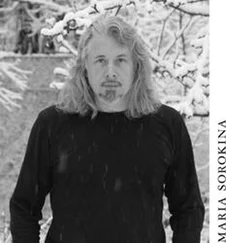Whether or not it was understood, whether it is easy or difficult, we need to buckle down. As Plato says in The Epinomis (992a), ‘[T]his is the way, this the nurture, these the studies, whether difficult or easy, this the path to pursue.’ 13The Epinomis here is a legacy, bequeathing the law of bliss, the law in the sense we have been speaking of, the law of humankind, of its nature; happiness in the sense that it was experienced by the Pilgrim when he discovered unceasing prayer, constant mindfulness. The whole history of thought speaks with striking unanimity of the happiness of humanity when it returns to the law. We read the final pages of The Epinomis, and this is so similar to the joyous pages of The Pilgrim. When he comes back to the law, to religion and faith, Plato tells us, a man will be freed from his distress (which we referred to, following the Gospels, as ‘the issue of blood’):
And the man who has acquired all these things in this manner is he whom I account the most truly wise: of him I also assert, both in jest and in earnest, that when one of his like completes his allotted span at death, I would say if he still be dead, he will not partake any more of the various sensations then as he does now, but having alone partaken of a single lot [i.e. he will be vouchsafed wholeness, unity, monasticism, Bibikhin ] and having become one out of many, will be happy and at the same time most wise and blessed. (992b)
We shall need to return to The Epinomis, because our main themes of the law, religion, constant mindfulness, and the forest in the sense of matter come together there really very clearly. But we shall remain firmly focused on what has just intrigued us most: matter as number; the forest whose very breeze, we cannot doubt, despatches metric space; and geography, which, according to Plato, has pure geometry as its law. We are not ready for this, to proceed by way of clues and glimpses, such as one that has been suggested to us, of seeing the pillars of a mosque, symbolizing the pillars of the universe, as a forest, as trees, and in some way subordinate to the sacred number of ‘17’. We can, if so inclined, link anything to anything else, any idea to any other. We, however, will prefer to admit failure, inability, rather than rush to associate the forest with a number, or agree with the majority of historians of thought who believe Plato was getting a bit carried away here, coming up against the limitations of idealism, or even, as Alexey Losev manages to claim in line with his preoccupations, that Plato was a man of his time who ‘lived and worked’ in slave ownership, with the result that he projects the callousness of a slave owner on to the world of ideas, and that his geometry is based on heartlessness. ‘Because number, devoid of qualities or indifferent to them, is precisely his basic principle, lacking any personal or “spiritual” dimension. Accordingly it is entirely predictable that Plato’s philosophy, having developed as far as its limitations allowed, ends up with the doctrine that his eternal and divine forms are numbers.’ 14
This is sad. I do not think Marxism was the cause of this blunder. More probable is what Nicolai Hartmann noted: that matter as number is such an amazing leap in Plato’s thinking that it has not been understood to this day. 15If Losev effectively passed on this, preferring to say nothing, that is because in his curious formulation he only hinted at a strict, harsh discipline, also to be found in the structure of the ancient polis, which succeeded in binding in slavery anybody unwilling to accept the risk of being free and taking responsibility for themselves. It was a degree of disciplining of thought that we have forgotten, but which is no less unyielding than mathematics. We have worked our own way round to the discipline and school of constant mindfulness. There is, of course, plenty about that in Plato. It is clear that without schooling, without strict discipline, it will be impossible for us to understand the riddle and mission of Plato, namely matter as number. Discipline is undoubtedly a necessary condition here, but is it a sufficient condition? We may not have enough vision. Does anybody know why the forest is digital?
The forest is wood, and wood is fuel. We take heat and light from fire, the burning of matter. Fire, according to Plato, is a tetrahedron. Not something in the form of a tetrahedron, not a tetrahedron filled up with something, just a tetrahedron. It is not that somewhere baffling processes are taking place with the primary elements in attendance and the tetrahedron is a kind of assembly or abstract function signalling or symbolizing them.
To our difficulties, deadlock actually, must be added the fact that if Plato understands the element of number, the one, in what is called a substantialist way, as a simple concentration, a happy totality, as a blessed fulfilment of everything, how is he to get anything out of such a one, which is clearly singular and clearly equivalent to the maximum integer of the universe? How is he to construct anything with it when a tetrahedron requires at least four different points? We land ourselves in the problem of the difference between the substantialist so-called Pythagorean number and the arithmetical number, which are completely different things. A lot of care has been needed to avoid getting burned by this distinction.
Again the admirable Nicolai Hartmann warns us:
The theory of Timaeus represents, in terms of its content, a synthesis of atomism and the doctrine of forms, which should be considered impossible in view of the natural antithesis of these two doctrines. There has to this day been no thorough investigation of this historical topic. This is one of the numerous gaps in classical historiography of philosophy in the last hundred years that result from its deficient understanding of the problem. 16
That is, the problem is not in the method and apparatus, but in too much understanding: everything is immediately abundantly clear to the researcher, just as the slave-owning undertow of Plato’s idea was, unfortunately, only too clear to Losev. Hartmann sees no problem where Plato did, and is perhaps even a little smug at having been able to sort it out as Plato, unable to resolve the contradictions between materialism and idealism, failed to.
Owing to the fact that the ‘contradictions’ between Plato and Aristotle have by and large been invented, it is even constructive to read the two philosophers as, on the contrary, complementary to each other. There is the brilliant, characteristic, and generally accepted denial by Aristotle of the existence of species and genera – ‘the animal in general’ exists only in the imagination, the species of donkeys perhaps a little more but still not really – and all that really exists is this particular donkey, and another one over there. He places a taboo, in other words, when inspecting this particular donkey, with those particular ears and those big eyes, on hypostasizing donkeyness; a taboo on extending it any further than this particular donkey. Or, if you like, we can eliminate donkeys altogether by counting them as one, two, and three but remembering while doing so that we are counting something that does not exist, and take full responsibility for the fact that we are doing, operating, something that does not exist. That makes all applied mathematics a risky business when, if you forget when counting ‘one thing, two things, three things’, no matter what they may be, it has already slipped into the realm of things that are not there.
And what if applied mathematics is calculating without including what is being counted after the number? The number will have reality if we see it as counting ‘this thing here’: that is, if we are viewing the donkey, not abstracting the number back to a general species or genus. At this point, Aristotle seems unable to help us further and it looks as though (although there can always be a surprise in store) we need to go back to Plato, to see the number itself no less specifically, as ‘thisness’ (haeccaeitas), than the donkey. Can we see the number, can we look straight at it in the same way we can look a donkey straight in the eyes?
Читать дальше












